Olivia DeJonge reveals why playing Priscilla Presley in Baz Luhrmann’s biopic Elvis was daunting
Fast-rising star Olivia DeJonge reveals why playing Priscilla Presley in Baz Luhrmann’s biopic Elvis was her most daunting role to date.
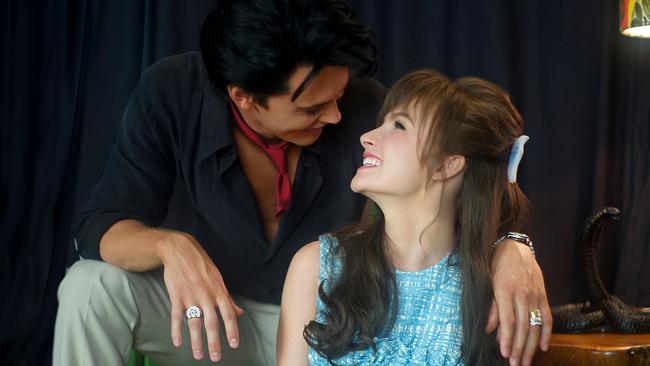
Seven years ago, Olivia DeJonge sat for her Year 11 exams in a hotel room, thousands of kilometres from her home. At the time, the Perth schoolgirl was filming the taut ABC thriller, Hiding, in which she portrayed a Gold Coast teenager whose life is up-ended when her family is forced into witness protection.
The following year, just days before her Year 12 exams, DeJonge was even further from home, doing international press interviews for cinematic master M. Night Shyamalan’s comeback film, The Visit. “I got back only a week before my Year 12 finals,” the actor tells Review. She had filmed her scenes for that movie – in which she played a girl confronted by her grandparents’ increasingly unhinged behaviour – in snowbound Philadelphia almost two years earlier. “I had to do school while I was on set. I was in 10th grade when I shot that movie – crazy!” the actor recalls.
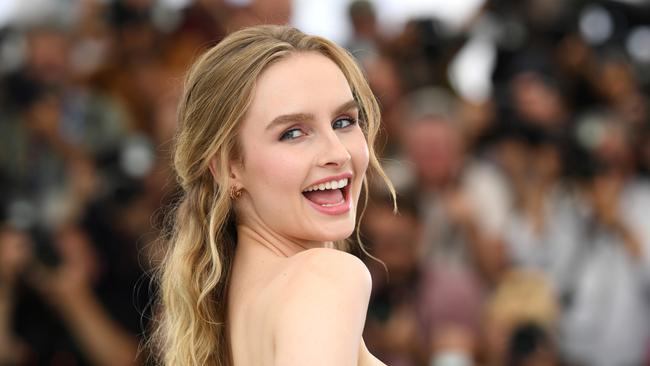
Asked if her filming commitments outside the classroom worried her parents, DeJonge reveals that at one stage, they did: “They were pushing for me to stop doing auditions and to focus more on school. They were like, ‘You have to be getting these grades or else you’re not going to be able to act and you have to finish school.’ … I spent a lot of time away from home.”
As the “singular driver” of her childhood acting career – between the ages of eight and 14, she reportedly recorded 41 voiceovers, four TV commercials and several short films – DeJonge assured her parents she could take on demanding roles and successfully graduate from Perth’s Presbyterian Ladies’ College.
In the end, she says her family and school were “incredibly” supportive of her performing ambitions, although she adds with a flinty flourish: “I don’t think that they had a choice, because I was just so determined to do both. I was gonna make it work, no matter what.”
DeJonge is now 23 and despite winning those sought-after roles at a young age, she still has “pinch me” moments about the parts she is playing as one of Hollywood’s fastest-rising stars. She ranks her latest role – playing Priscilla Presley in Baz Luhrmann’s unapologetically flamboyant biopic, Elvis – as her biggest career break to date. (She also is starring in the new HBO Max crime drama, The Staircase, as part of a dream cast that includes Toni Collette, Colin Firth and Juliette Binoche).
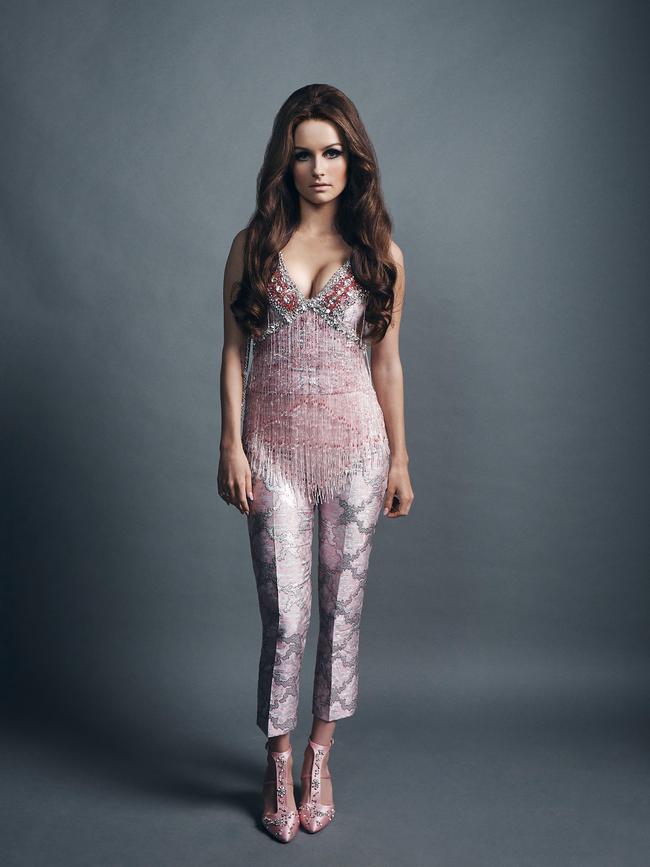
Speaking over Zoom from New York in an accent that is two parts Australian, and one part mid-town Manhattan, she says: “I grew up in Perth, which is like the most isolated city in the world. It is crazy to me that I’m spending time in a different country for a career that I’ve wanted since I was a kid. I’m surprised every day. I’m grateful every day, too … there’s a lot of luck that goes into these situations.”
In portraying Priscilla – the beautiful daughter of a navy pilot who married the most famous man on the planet – DeJonge wanted to evoke a sense of emotional authenticity between her character and Elvis, played by Once Upon A Time … In Hollywood star Austin Butler: “I just wanted to play a girl that really loved a boy,” she says. “That was a big thing. Baz was sort of stripping down the stereotypes, the tropes, and maybe the obvious choices. And I just wanted to play somebody real.”
Priscilla was only 14 and Elvis 24 when they started dating in 1959 and DeJonge agrees “the age gap, looking at it through a modern lens, is somewhat problematic. But I think it’s important to not ignore the time period they were in – which was when things like that weren’t necessarily uncommon. It was a long courtship. Parents were involved.”
Luhrmann’s film spans 25 years of Elvis’s life and career and DeJonge says it was “exciting” to inhabit different stages of the couple’s relationship; the film depicts how they met when Elvis was performing military service in Germany, the arrival of their daughter Lisa Marie and their tear-soaked split before they divorced in 1973. The actor observes in the film’s press notes that “Priscilla put Elvis first for a very long time” – the movie shows the superstar kissing adoring female fans on the lips in Las Vegas while Priscilla sits, mute but clearly wounded, nearby.
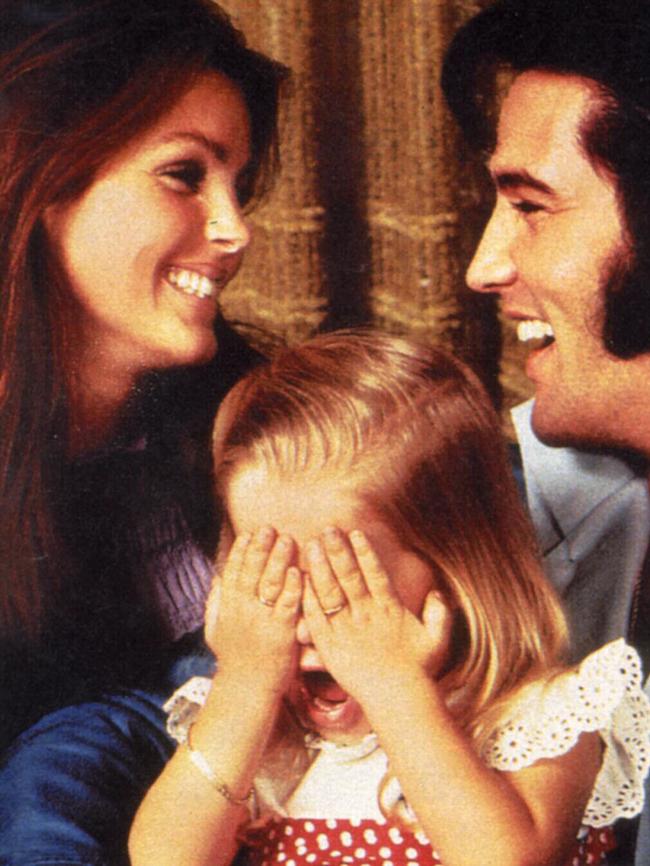
DeJonge continues: “I think she loved him with her whole heart and cared for him in a way that nobody else did, and I think she was home for him. In the beginning, she tries to become everything that Elvis wanted in a woman, but then she finds her own voice … although she never stopped loving him.”
Luhrmann was drawn to DeJonge’s intelligence and “great self-possession” when he cast her in Elvis, his first feature film since 2013’s The Great Gatsby, which generated more than $US350m at the global box office. The auteur says: “With Elvis and Priscilla, I think that there was a kind of delicate, innocent romance in the beginning. By the time they met, Elvis had found it near-impossible to meet anyone who didn’t have some kind of ulterior agenda, so he and Priscilla quickly formed a protective cocoon. She was also there in the end as a friend, a true friend … I had to find someone who, like Austin, is mature beyond their years and could play this character for a long span of time. Olivia is just that.”
Elvis was unveiled at the Cannes Film Festival last month and earned a rare, 12-minute standing ovation. The film’s Australian premiere is being held on the Gold Coast on June 4 – with Hollywood superstar Tom Hanks flying in for the launch. The blockbusting biopic will have a special screening at Sydney’s State Theatre on June 5 and will also be shown at the Sydney Film Festival ahead of its national release on June 23.
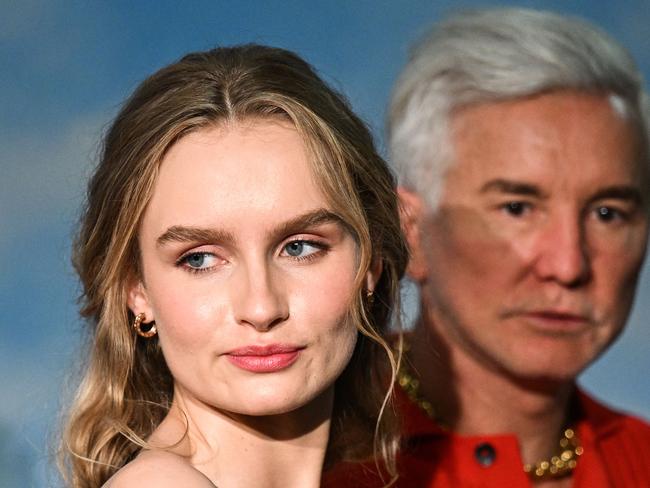
An irrepressible riot of eye-popping costumes, rock ‘n’ roll classics and hip hop, swooping camerawork and split screens, the film was shot on the vast sound stages and backlot of Village Roadshow Studios on the Gold Coast. There, replicas of Elvis’s Graceland mansion and home of the blues, Beale Street, Memphis, took months to build – and had to be wrapped in plastic when the Covid pandemic shut down production for almost a year. The film features 90 costume changes for Butler’s Elvis alone, including the bejewelled jumpsuits, while 300 vintage cars and motorbikes were sourced from Australian collectors.
Directed, co-written and co-produced by Luhrmann, the film tells the story of the King of Rock and Roll through his long, tempestuous relationship with his manager, Colonel Tom Parker, played by two-time Oscar winner Hanks. Hanks’s character was not a Colonel, nor a Tom, nor a Parker but a Dutch ex-carnival barker who financially exploited Elvis to feed his gambling addiction. According to Luhrmann: “If there’s one true thing about the Colonel, it’s that his first and foremost thought was always, ‘How can I make as much money as possible?’ without much consideration to Elvis’s creative and spiritual wellbeing. And there’s a tragedy in that.’’
The film uses Elvis’s rags-to-riches to ruin story as a prism through which to refract America’s racial, political and cultural postwar trends and tensions. Luhrmann says Priscilla is central to that journey, while DeJonge reflects how the film shows a “loss of innocence” relating to “female sexuality and female hormones, almost, (as) Elvis sent temperatures rising in the audiences”.
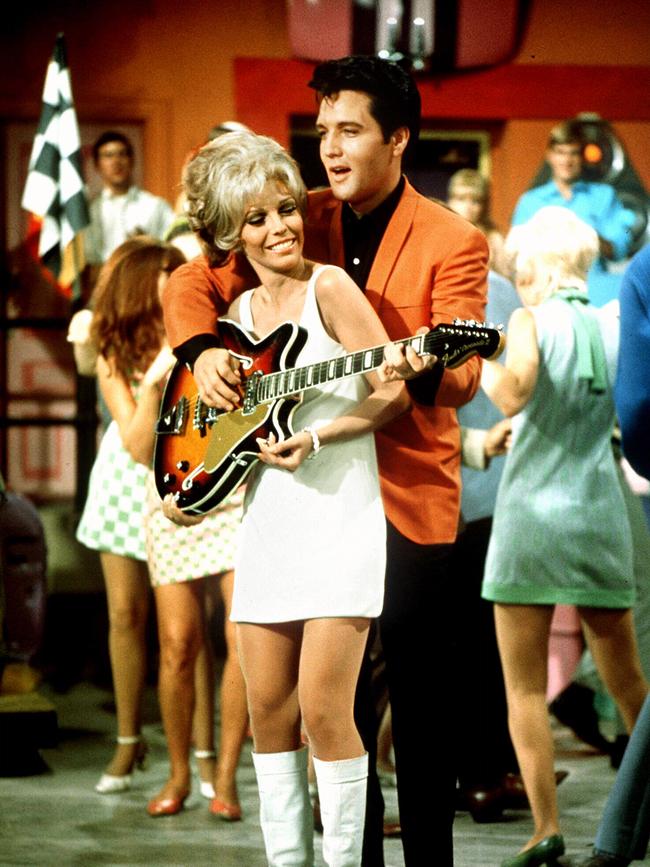
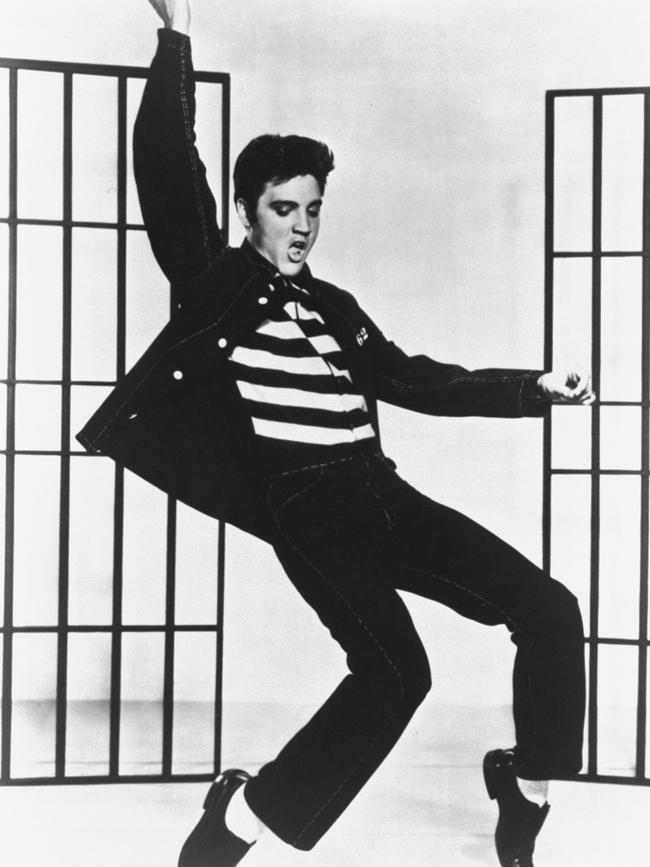
Back in the day, the press, police and many politicians were scandalised by “Elvis the pelvis” and his “lewd gyrations”, and the film makes the most of this, with lingering close-ups of Butler’s trembling hips and thighs. DeJonge chuckles as she observes that Butler – whose kinetic performance has been widely hailed – “definitely had it down; he really nailed it.’’
Now based in Melbourne, and a fresh-faced brand ambassador for luxury fashion and jewellery house Bulgari, DeJonge says it can be “daunting” playing a woman who is alive and “who still honours the time that (she and Elvis) shared. I have to really make sure that I still protect that. She speaks very highly of Elvis and their relationship. Even though it was complicated, there was a lot of love there.’’ Covid prevented DeJonge meeting Priscilla until the Cannes festival launch, but the Australian says that to prepare for her role, she read the now 77-year-old’s memoir, Elvis and Me, “front to back and back to front 100 times, and other books that were written about her as well. We didn’t get a chance to meet. But she has seen the film and loves it and that’s what’s important.”
(Priscilla, an ex-actor and businesswoman who turned Graceland into a lucrative tourist attraction, has described the film as “a true story told brilliantly and creatively that only Baz, in his unique artistic way, could have delivered”.)
Luhrmann’s film also explores how Elvis’s ability to shake, rattle and roll was shaped by his early exposure to black gospel and blues music.
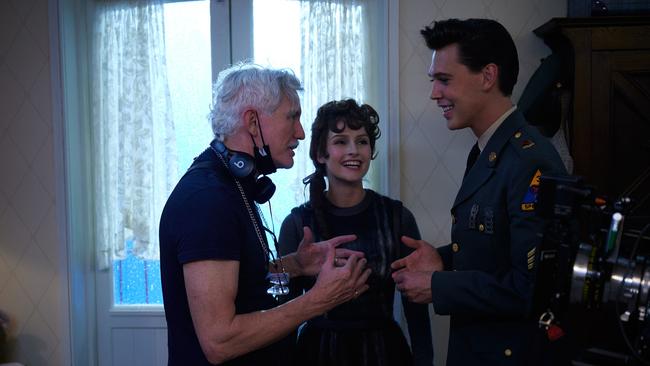
“One hundred per cent,” agrees DeJonge. “His was the only white family in a very black community – he loved black music, he was influenced by black music and he borrowed from that indefinitely.’’ The movie, she says, “speaks today obviously with the conversation about cultural appropriation and it’s a real tragedy that black artists didn’t get the credit that they deserved at the time. But I really do hope this movie continues that important conversation.”
Luhrmann’s production pays tribute to Elvis’s African-American contemporaries, among them B.B. King (played by Kelvin Harrison Jr), Sister Rosetta Tharpe (Yola) and Little Richard, portrayed by Alton Mason and sung by Les Greene.
Oscar-winning designer Catherine Martin, who is married to Luhrmann and collaborates on all his films, has created the costumes and production design and Priscilla sports a spectacular beehive. “There was a lot of hair,” jokes DeJonge, who spent three to four hours in make-up to prepare for some of her scenes. “It was very heavy, so heavy I remember I’d come home and my neck would be like (aching) from these giant wigs. A lot of time went into the wigs.”
In the film, other key supporting roles are played by Australians including Helen Thomson as Elvis’s doting mother Gladys, Richard Roxburgh as the star’s strangely passive father Vernon and David Wenham as comically uptight country singer Hank Snow.
“To be on this movie and to be shooting in our home country, it was riveting, and really exciting,” DeJonge says. “Helen and Richard are beloved. It felt like family; it felt like a real sense of home.” She also worked alongside Hanks, who made world headlines when he was treated for Covid in Queensland during the early, nerve-jangling days of the pandemic.
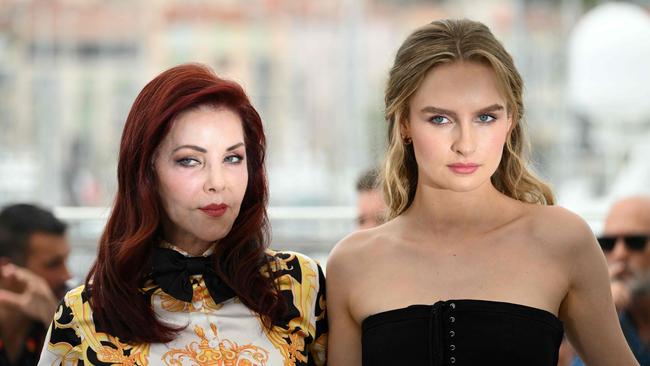
As previously mentioned, Priscilla Presley is not DeJonge’s only current, noteworthy role. She is starring in HBO Max’s eight-part drama The Staircase, which is based on the Netflix documentary series about an American novelist, Michael Peterson (Firth), who is charged with the murder of his wife Kathleen (Colette). Kathleen was found at the bottom of the stairs in the family home with deep lacerations to her skull. Was this an accident, as Michael, a closet bisexual, contends? Or was she deliberately killed?
DeJonge explains, “I’m playing Caitlin Atwater, Kathleen Peterson’s daughter … She starts out a part of the family (supporting her accused stepfather) and as the case continues, she ends up flip-flopping in her mind about it.” DeJonge’s performance as a bereaved young woman who doubts her stepfather, captures the confusion, anger and disorientating grief of this emotionally exposing role.
Why are viewers so intrigued by this case, which has been explored through the award-winning documentary series, books and now this drama, streaming on Binge? “I think because there’s no real answer,” the actor replies.
“Every avenue that you go down; there’s always like a hmmm, no – you can go to one theory and suddenly you’re down another theory and there’s no black and white.”
(In 2003, Peterson was found guilty of his wife’s murder and sentenced to life in jail. In 2011 that verdict was overturned after it was found that a blood spatter expert had given misleading testimony. Peterson was eventually released from custody after reportedly making an “Alford plea” to voluntary manslaughter – an admission that there is enough evidence to convict.)
For someone who has made significant inroads into Hollywood, it comes as a surprise to hear DeJonge say, “I didn’t do any training. I sort of fell into it when I was a kid and yeah, have just been acting since then. Maybe I need one (an acting coach)?” she wonders aloud, chuckling.
So for her, acting is instinctive? “I think so. I go with my gut feelings towards things and certain aspects of characters that feel organic to me.”
She was just 18 when she played Alice Burbage, spirited daughter of a theatre manager and lover of William Shakespeare, in the 2017 TNT miniseries, Will. That drama was filmed in Wales and a critic for The Guardian wrote that DeJonge was the show’s “standout” performer. In 2019, she portrayed a social outcast in the Netflix YA drama The Society, in which suddenly parentless teenagers are left to fend for themselves. According to DeJonge, this drama “spoke to the power of youth and to how young people are really underestimated”.
When asked why our homegrown actors are in such big demand in Hollywood, DeJonge has a ready answer that speaks to her extraordinary drive and focus: “When you come to a different country to chase a career, you’re giving up everything to be an actor and there’s a sense of ‘all in’ when you’re coming from Down Under. There’s a level of drive that comes with being away from home and I think we’re all pretty hard working.” She adds, with a self-mocking grin: “I think we’re all really nice.”
Although she is from a generation more into rap and hip hop than a singer old enough to be her grandfather, she heard Elvis’s music “throughout my childhood. My parents loved listening to music.” Her favourite Elvis song? “I love Blue Moon.”
She predicts Luhrmann’s film, released 45 years after Elvis’s death at the age of 42 in 1977, will change people’s perceptions about the singer once known simply as The King.
“I think maybe it will bring more of a human element to him,” she says. “I really hope that it reintroduces the music to the next generation – his music is so timeless – and that we all get back into it again.”
Elvis premieres on the Gold Coast on June 4, in Sydney on June 5 and at the Sydney Film Festival on June 15 and 17. It is released nationally on June 23.


To join the conversation, please log in. Don't have an account? Register
Join the conversation, you are commenting as Logout